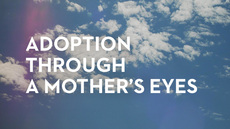“And Jeremiah sank in the mud.” Jeremiah 38:6
It’s not uncommon to feel stuck, even for those of us who do biblical counseling. We can get stuck when someone we’re discipling believes they’re trapped by the suffering they’ve experienced, and we, in turn, find ourselves feeling trapped in their painful circumstances. When I get stuck, it can feel like I’m temporarily forgetting who God is and how he relates to the person in front of me. In those moments, the counselee’s pain or sin becomes bigger and more relevant in my heart and mind than Jesus who bore our grief and carried our sorrows. When we feel stuck, we ache to reorient our hearts to remember and honor him and love his hurting child.
But before we jump there, let’s first look at some conditions that can make us feel stuck.
Stuck between situations
With hard circumstances, there are no easy answers. In one of my very first quarters counseling, there was a woman in the group who was a new believer and was sharing about the abuse she had suffered as a child. “I don’t expect life to be easy or fair,” she said through tears. “I just don’t understand why it had to be that bad when I was just a little girl.” I didn’t know why either. Sometimes just hearing stories of intense suffering and sin can make us feel immobilized, lacking hope, insight, or questions, much less answers.
While some people wear their hearts on their sleeves, others steel themselves up behind defensive hearts. Their stories of suffering and sin are presented as mere facts from someone who has lived the hurt, yet seems disconnected from it. One woman remarked, “I don’t know why all this has happened to me, but I’m not going to try and make it OK by turning it into some ministry where I get to help other people. That’s just pathetic.” A counselee who is defensive can seem impenetrable.
Ever been affected by another person’s story or struggles in a way that hits very close to home? Sometimes the counselee’s experiences and beliefs may be a personal trigger, exposing an area in your own life where you are not entirely convinced of God’s care, presence, and power. Or, maybe you are hearing stories of suffering and sin that illicit such strong emotions for you that you feel unable to effectively serve the counselee.
Sometimes things are just confusing; you have no idea what to make of what you are hearing and seeing. You ask more and more questions hoping that if you collect enough information the confusion will clear. Sometimes that doesn’t help at all, and you begin frantically doggie-paddling, hoping the counselee won’t notice that you are almost all tired out.
A holy discomfort
This list of conditions only skims the surface of instances where we find ourselves stuck. And it’s pretty bleak! And to be honest, writing and thinking about being stuck has felt like walking through tar.
But here’s what’s good about it: When I see my “stuckness,” I am uncomfortable and I am given the opportunity to explore my heart, mind, and beliefs about God. Being stuck can lead to fruitfulness if it causes us to earnestly seek God and others for help.
Let’s look at ways that we can reorient ourselves on God, remembering that as Christians we are no longer truly stuck or trapped.
“They drew Jeremiah up with ropes and lifted him out.” Jeremiah 38:13
“Bear one another’s burdens, and so fulfill the law of Christ.” Galatians 6:2
Believe, pray, listen
Is God who he says he is? Hurting people need to know that they can reopen the past and bear through present trials in the presence and care of their heavenly Father. Jesus went to the greatest lengths possible to free us from the eternal effects of sin. He didn’t just come to the earth so he could observe our pain and sin—he came to take it upon himself. Can you tell a counselee with absolute assurance that they can venture down the most painful path and find that God is always good, always strong, and always faithful?
Prayer is an essential part of our lives as Christians, and so it is essential in counseling. I know this is obvious, but it is so obvious that it can be overlooked! I can ask God for his help and provision even when I’ve lost perspective in the situation. “God help me. God help her.” is a perfectly lovely prayer that can be uttered countless times.
And I don’t have to be the only one praying in the room. I mentioned a woman earlier who made this statement, “I don’t expect life to be easy or fair; I just don’t understand why it had to be that bad when I was just a little girl.” What a beautiful opportunity to invite her to pray to her heavenly Father and offer those deep hurts to him for the first time!
Maybe you feel as though listening carefully is what has gotten you stuck in the first place. I would say that passive listening can contribute to the problem of losing perspective and finding ourselves tangled up in the details. We must maintain some resistance, not to the person we are counseling, but against the lie that this is “too much” for God.
Try listening to what is being said in a new way, approaching what you are hearing with deeper curiosity. Begin listening for language that may point to some overarching themes. Listen for what the counselee is believing about God, others, and self. Use that information to try to get beyond the details.
“So if the Son sets you free, you will be free indeed.” John 8:36
Ask for help
Counselor, if you are stuck, tell God and tell his people. If you are struggling with trusting God, tell him and tell his people. If you are struggling to believe God is good, tell him and tell his people.
We must not try and hide our inadequacies and unbelief. We are not above believing lies about the character of God. We should all have supervisors, trusted counselors, and friends who ask good questions, admonish, and encourage when we are stuck.
Do you need help? Someone to talk with about painful circumstances? At Mars Hill, Redemption Groups exist to help you. Redemption Groups are in-depth small groups that dive into discussions of the difficult circumstances in people’s lives, like abuse, addiction, and other trials. But these groups aren’t pigeonholed for addicts or the abused—Redemption Groups are for everybody, as we’re all sinners and sufferers. Connect with your local Mars Hill Church for more information on how to join a Redemption Group.
Lauren Day is a deacon at Mars Hill Downtown Seattle where she serves as a biblical counselor and Redemption Group leader.
This is adapted from an article Lauren wrote for the Biblical Counseling Coalition. Check out the original here.















